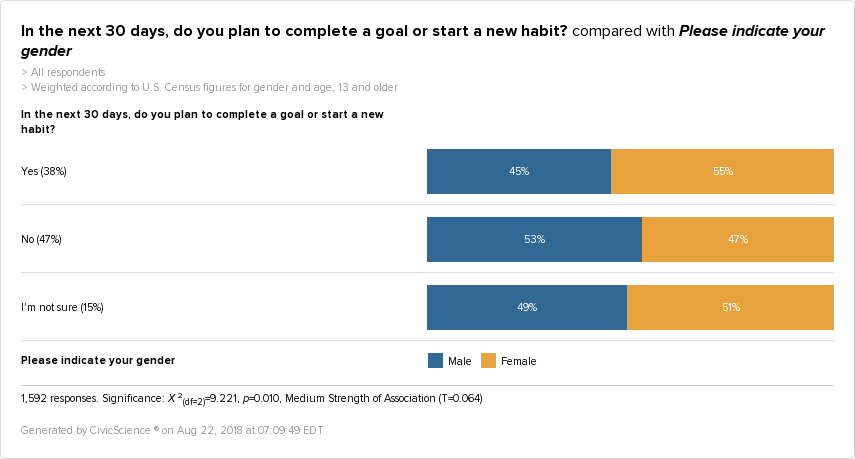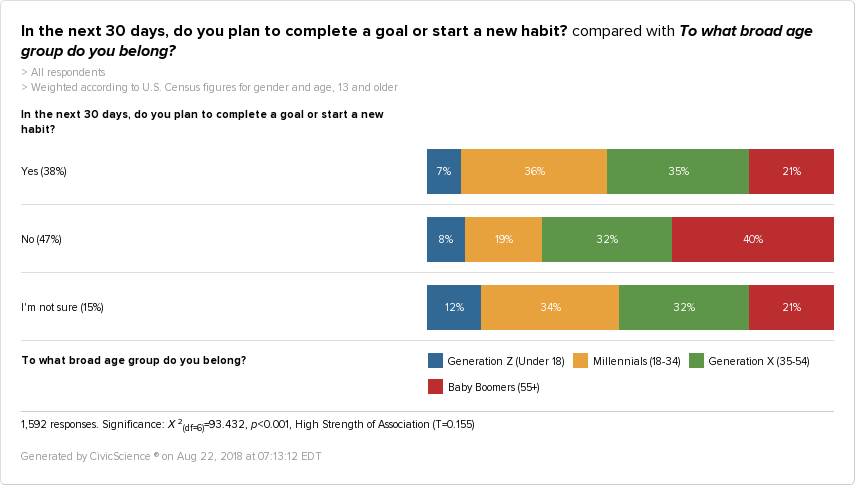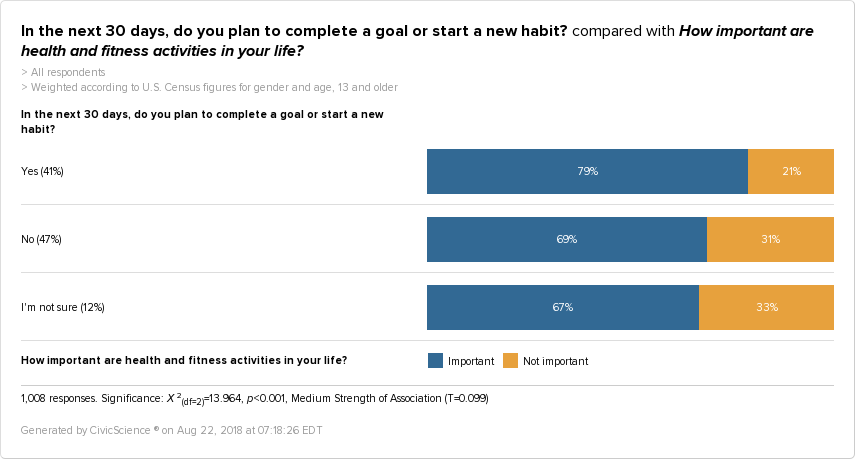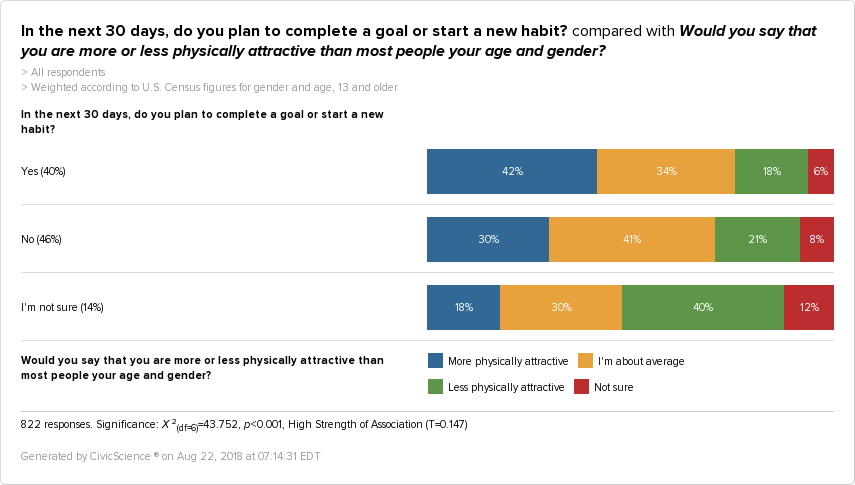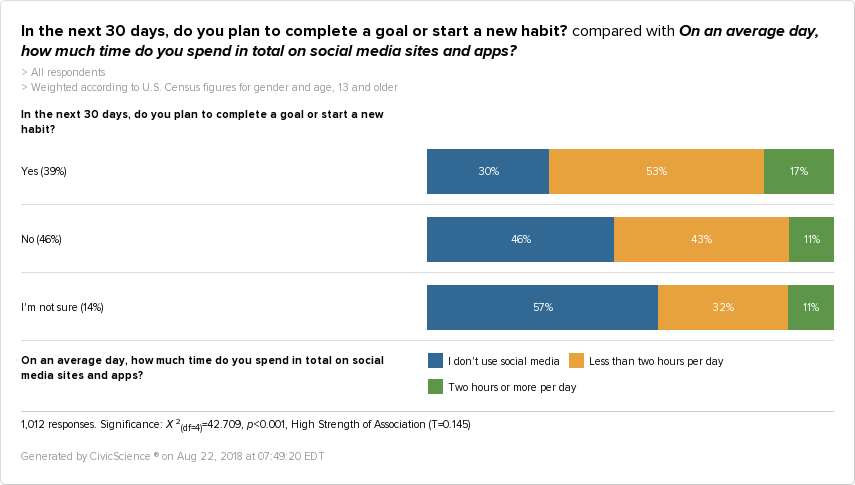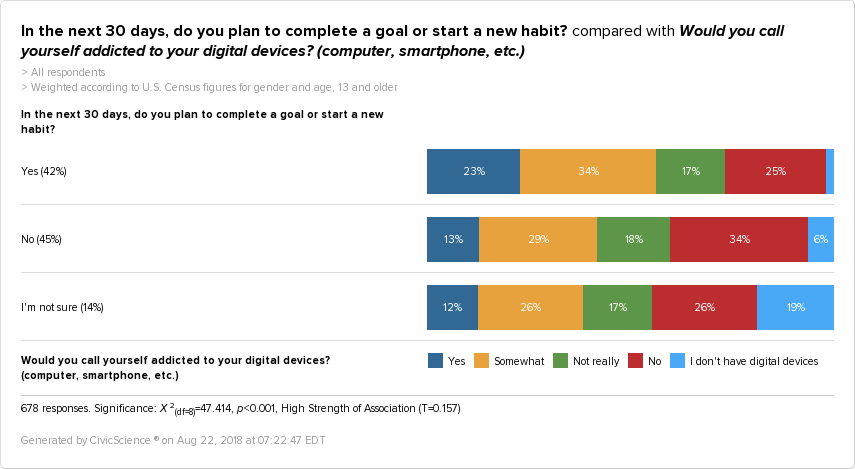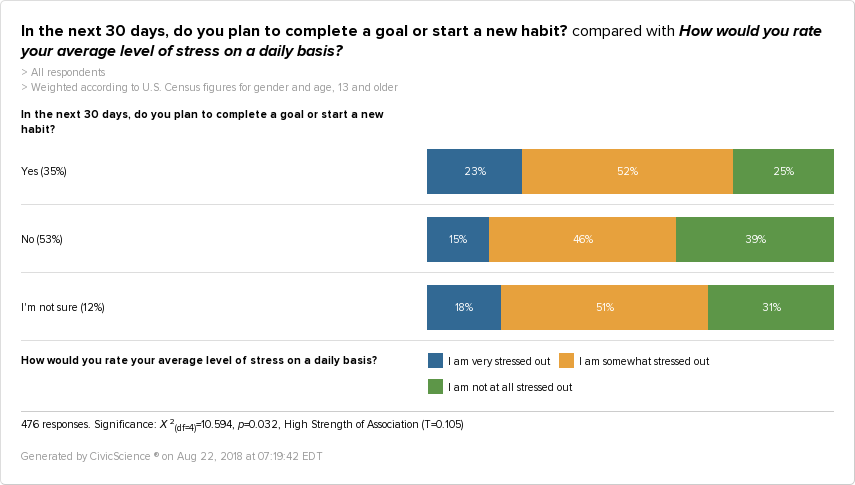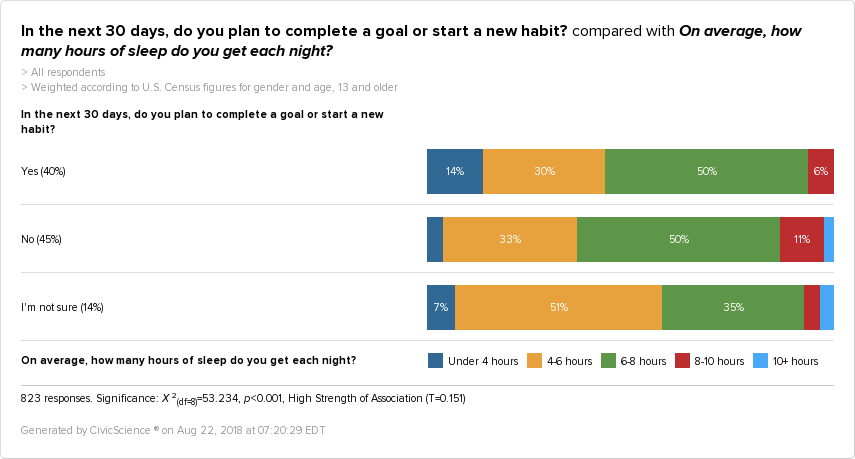As fall appears around the corner, many Americans are settling into a new routine, returning to work, school and the day-to-day responsibilities they may have avoided during the long, hot days of summer.
CivicScience asked 1,592 Americans about their plans for the next 30 days. As the data reveals, 38% of people do, in fact, plan on embarking on a new habit or completing a goal in that timeframe.
Although January 1st is commonly considered the time to start something new, these numbers indicate that the changing seasons also offer a fresh start to those revamping certain aspects of their lives.
Women, in particular, are slightly more likely to set new goals in the next 30 days, as they comprise 55% of those motivated to make changes.
This drive to establish new habits could also be related to life stage, as Millennials and Gen X-ers make up 36% and 35%, respectively, of those who have indicated a desire to complete a goal or start a habit.
These numbers are not wholly surprising, given the fact that the ages of 18-54 are when most people are making the biggest decisions of their lives, that may require more structure and motivation to accomplish. Members of Generation Z are still, likely, living at home, while Baby Boomers could generally be taking a step back from the years of intense drive to enjoy a more relaxed pace.
When most people think about New Year’s Resolutions, health, fitness, and beauty tend to be a high priority. But, as it stands, 79% of Americans who plan to start a new habit indicate that fitness is already an important activity in their lives.
What’s more, these same goal makers also have high opinions of their appearance. 42% of those who plan to start a new habit believe they are more physically attractive than their peers.
So, if Americans are not setting goals out of a desire to become healthier or feel more attractive, what could be driving the trend? While there are many factors to consider, one of the most prominent is the impact of social media usage.
Americans who plan to complete goals in the next 30 days spend the most amount of time on social media, with 17% spending two or more hours a day on sites and apps.
They are also generally device-reliant. 23% say they are addicted to their devices, and 34% characterize themselves as somewhat addicted.
For many, social media purveys a certain aspirational lifestyle, and individuals often seek to create lives that match the beauty and perfection they see represented online. Those who spend a greater amount of time on social media may be exposed to these influences at a higher rate, which could be impacting desires to start new habits or accomplish goals.
What the data is clear about, however, is that setting goals and starting habits could be related to mental health. 23% of those who plan to start a new habit in the next 30 days consider themselves very stressed out. Only 15% of those who do not plan to start a new habit say the same.
While goals can be exciting, they do add a layer of pressure onto already busy lives. Whether stressed out people gravitate towards making goals or goals make people more stressed out, there is a clear correlation between the two.
As a result, sleep suffers. 14% of people who plan on completing a goal in the next 30 days report getting under 4 hours of sleep on average. Those who do not have plans to start something new barely rank in that category.
Setting an intention to make a change in one’s life is typically heralded as a positive and beneficial choice. But, as the saying goes, all that glitters isn’t gold.
Just because Americans are making goals doesn’t mean that they’re doing so mindfully or taking into consideration the other life factors that could be impacting their overall levels of health and success on a daily basis. Social media and digital device addiction, abundant stress and little sleep are all very real issues at play that ask us to reconsider the motivation behind every goal completed and the long-term effect of every new habit formed.

